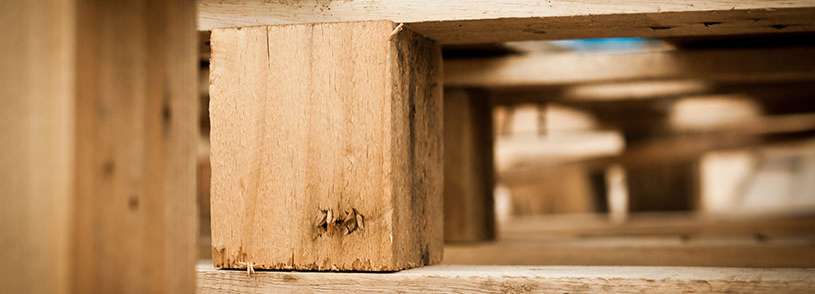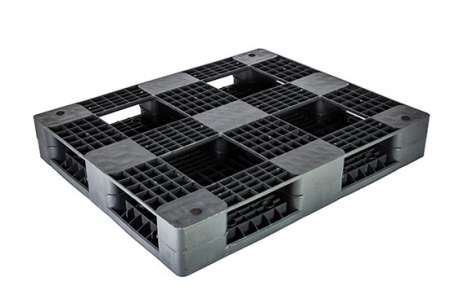The Best Pallets for the Food and Beverage Industry
From the farm to the supermarket shelf: the role of pallets
Every food item you can imagine is available at a local supermarket or retailer. Sourced from farms and manufacturing plants across Australia and the world, these items have a long journey before they finally hit the store shelf. This entire trip is all carried on the back of a pallet, which needs to be sanitary and largely free of contamination.
Increasingly, wooden pallets are being phased out in favour of plastic pallets in food and beverage transport and distribution. Wooden pallets pose a higher risk of contamination, as bacteria, pests and fungi can survive on and under the surface of the wood. This contamination is a health risk, and suppliers can face the liability of consumer sickness as well as financial penalties.
Plastic pallets are more hygienic and reduce the risk of contamination of food during transport. Plain Pallets supply Melbourne with quality, industry standard plastic pallets ideal for transporting food and beverage items. Call Plain Pallets on 03 9545 7344 to discuss your pallet needs.
The risks of wood pallets

Cleanliness and food safety requirements in the food and beverage industry exists at all levels. Non-compliance can result in a range of legal consequences, from penalty notices issued by a government officer or statutory action and prosecution in serious cases.
These food safety requirements extend to the transport of food. Wooden pallets have a higher risk of harbouring bacteria, pests or fungi, while splinters or protruding nails have the potential to break packaging and allow this contamination be exposed to food. This contamination poses as a health risk to the consumer and a liability risk to the supplier.

In the United States, consumer advocacy group NCL conducted independent testing of wooden pallets used in the food industry. Their experiment suggested that up to one third of pallets were deemed unsanitary. This includes up to 10% of the sample which tested positive for E. coli, a bacteria commonly associated with food poisoning.
Hygienic plastic pallets
The use of plastic pallets in the food and beverage industry eliminates many of the risks associated with wood pallets and associated food contamination.
 Plastic pallets are easier to clean and sanitise than wood pallets. The plastic material does not absorb water, so any surface contamination is readily destroyed during the cleaning process. This means that pallets can be reused again and again without increased risk of contamination.
Plastic pallets are easier to clean and sanitise than wood pallets. The plastic material does not absorb water, so any surface contamination is readily destroyed during the cleaning process. This means that pallets can be reused again and again without increased risk of contamination.
Insects and pests cannot live inside the wooden material, and no chemicals are needed for the treatment against these pests. Plastic pallets also have no risk of packaging becoming damaged due to protruding nails or splinters.
Quality Plastic Pallets for food and beverage
Why use plastic pallets for food transport?
- Easy to clean
- Less contamination risk
- No insects or pests
- No nails or splinters
- Chemical free
These unique properties make the transportation of food and beverage items safe, and reduce the risk of resulting fines and liability for the supplier. And remember it's always a good idea to use pallet wrapping machines with clean stretch pallet wraps in place of manual handling.
Plain Pallets can supply your business with quality, food safe plastic pallets. We have over 40 years’ of experience in supplying safe pallets used in food manufacturing and distribution.
Call our friendly team on 03 9545 7344 to find out more about plastic pallets for food and beverage.
Must Read
Plain Pallets on 29 April 2014
How to Get Greater Mileage out of Your Pallets
Do your pallets go the distance? If not, you may be losing money through replacement costs and damaged goods. Get the most out of your pallets ...
Read morePlain Pallets on 11 March 2014
Plain Pallets Display the Future of Sustainability
Pallets are always useful. See the many ways old pallets can be reused. Who knows, maybe your next house or business will have some great pallet furniture! ...
Read more